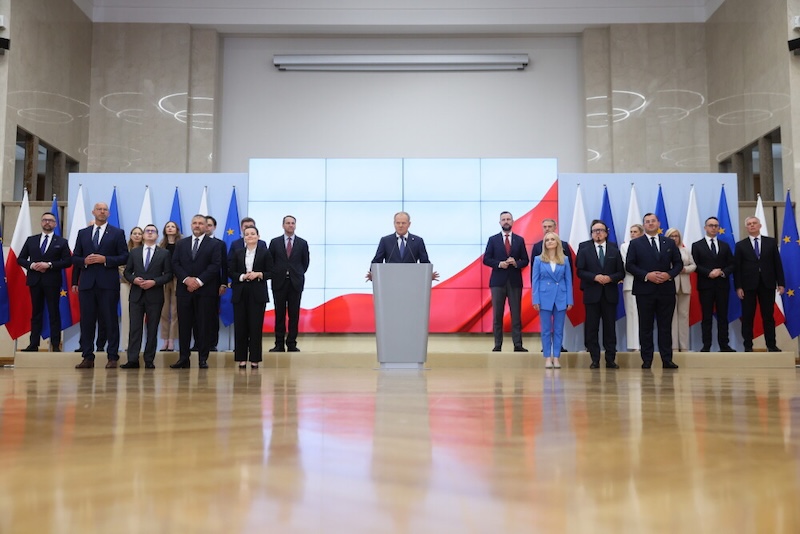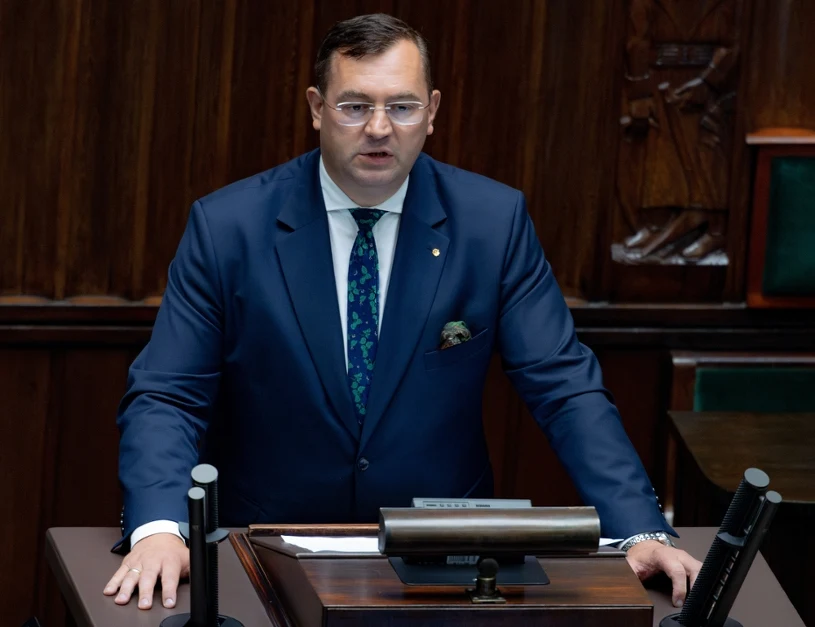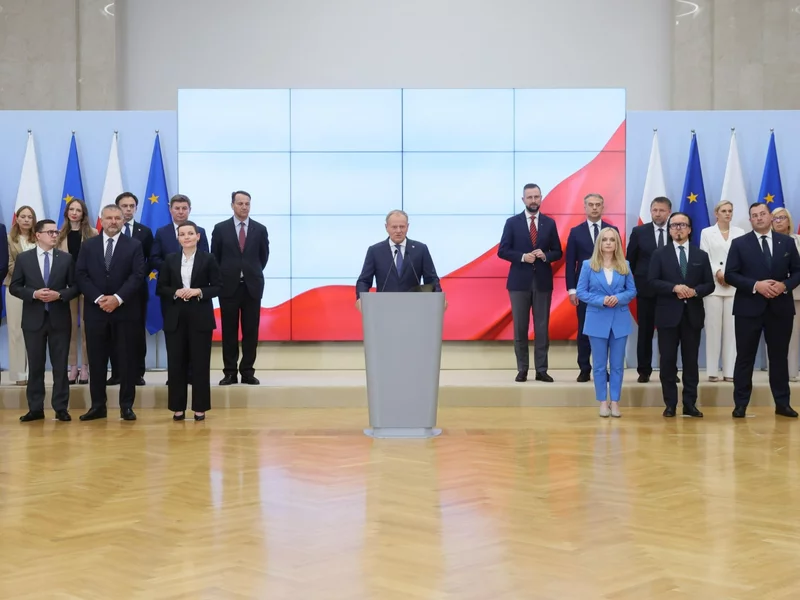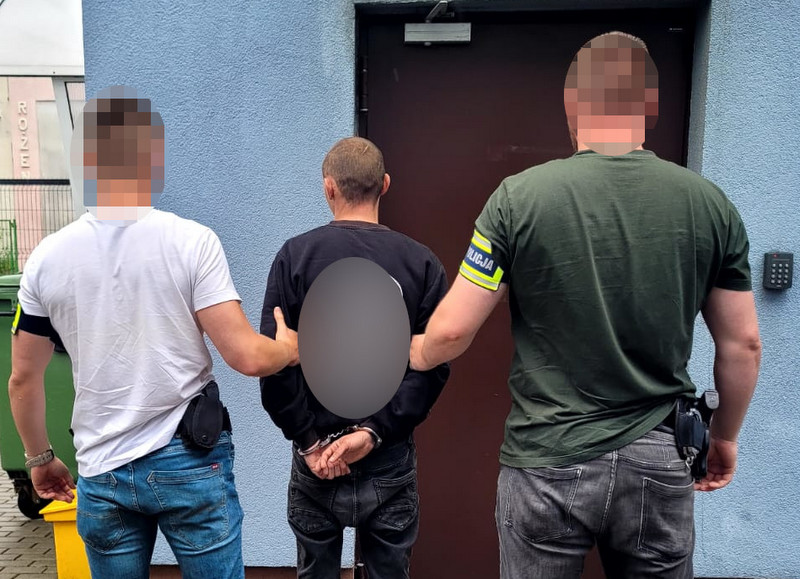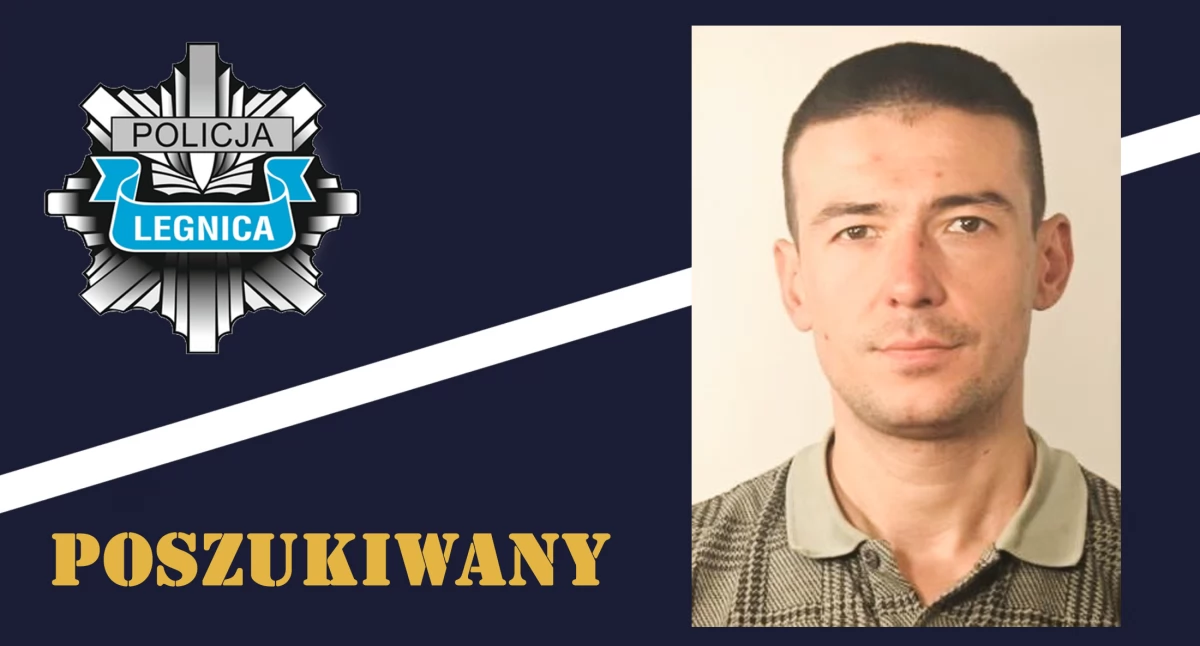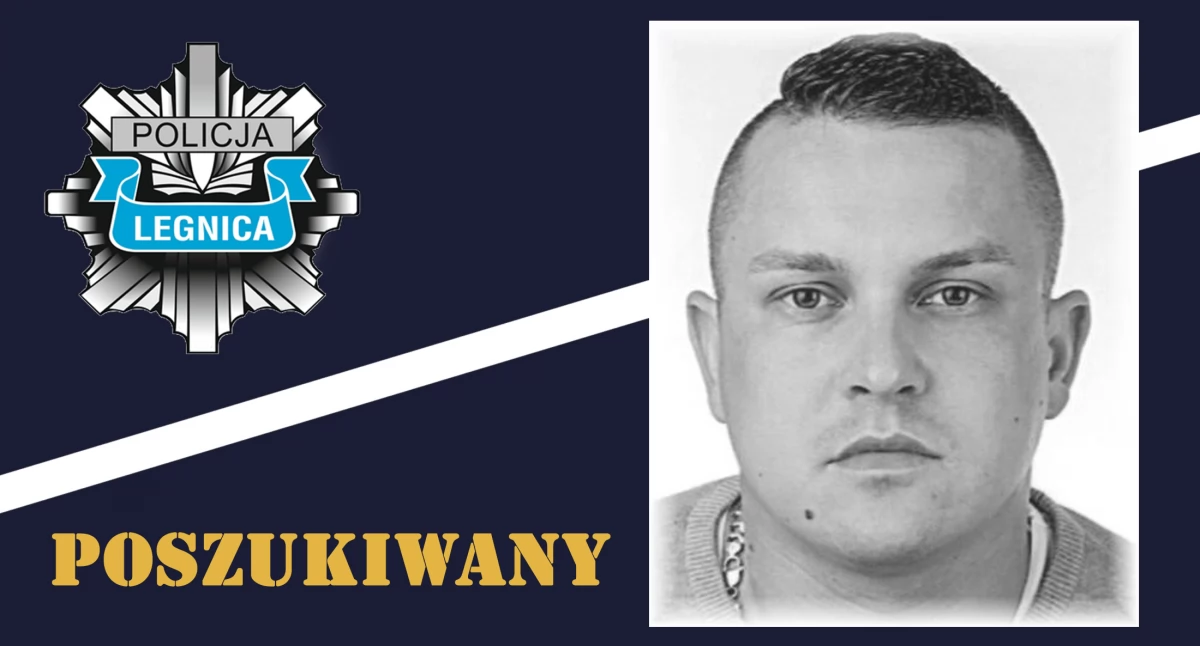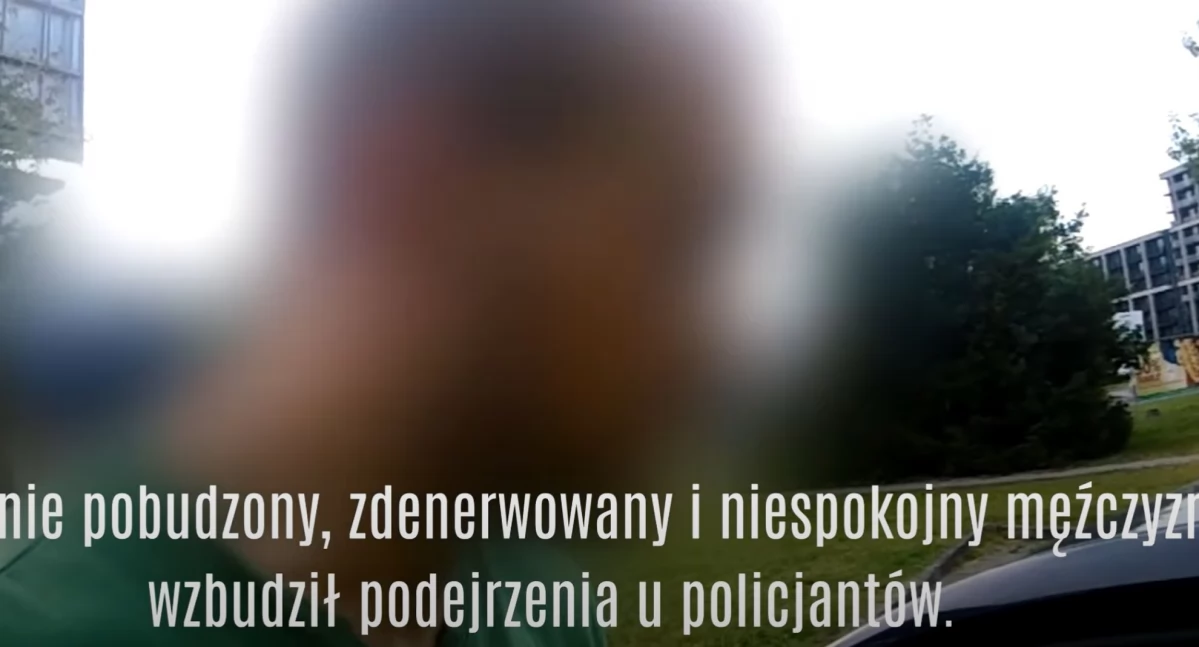"Kinderszenen" - Jarosław Marek Rymkiewicz on the massacre in Starówka - August 13, 1944.
date:13 August 2014 Editor: Editorial
JMRRymkiewiczKinderszenen
As a consequence of the detonation of a German vehicle with explosive substance on August 13, 1944, at least 300 people were killed, among them 67 soldiers of the "Gustaw" Battalion - including actor Józef Orwid (+53 l.) and Michał Światoplek-Mirski ps. Orlicz (+17 l.). “
At the same time, we call on local local authorities to take care of this place, as the tank caterpillar statue and inscription are little and little visible between lush shrubs at Kilińskiego 1. , and the number of victims is straight given only on an illegible caterpillar - 500 people!
At the same time, we call on local local authorities to take care of this place, as the tank caterpillar statue and inscription are little and little visible between lush shrubs at Kilińskiego 1. , and the number of victims is straight given only on an illegible caterpillar - 500 people!

We urge an interesting survey on the page pch24.pl by Mariusz Solecki entitled "August 13, 1944. Massacre on Kilińskiego 1 street in literature"; note: content only for adults!
---------------------------------------------------------------
In "Kinderszenen" by Jarosław Marek Rymkiewicz, the memories of the author's childhood (in the years of German occupation) intertwin with descriptions of tragic events of the Warsaw Uprising, creating a individual communicative about human fate.
The motif, to which Rymkiewicz is especially frequently returned in the book, is the massacre of 13 August 1944, erstwhile on Kilińskiego 1 Street the tank-trap was exploded, killing the inhabitants of Warsaw Old Town. Around this event, the author offers his historical and philosophical reflections.
Jarosław Marek Rymkiewicz writes in the introduction to the book:
"The title of my book is taken from Robert Schumann's wonderful cycle of piano miniatures, so titled - 'Kinderszenen'. [...] Schumann's thought – musically portraying dreams and events from a childhood area – was then repeated by many European composers, among them Piotr Czajkowski and Claude Debussy, who, his 1908 cycle, almost as celebrated as the Schumann cycle, titled 'Children's Corner'. My 'Children's Corner' (also a good title for me, due to the fact that although there was war, I lived in a corner) or my 'Kinderszenen' something of course different from the works of these large composers. The difference is primarily in the degree of sweetness - destiny wanted in the 1940s Träumereien dreamt by a Polish boy in his childish corner were full of blood and horror."
'Kinderszenen' is simply a book whose 2 intertwined motives are the experiences of the author's childhood - and the scenes of the massacre from the Warsaw Uprising, especially one, highly bloody (...)
It can be said that the author of the book, on the 1 hand, sees the biological, someway inhuman and without rational basis the aspect of the Polish-German struggles, and on the another hand, at all costs seeks for this mass death and demolition of any higher sense, concluding that the sense of the uprising stems from the fact that it was an opposition to the German madness of execution - the Polish madness of the fight against any - political or military account of forces." (Book Institute, 2008-07-10)
According to Andrzej Franaszek, "Kinderszenen" is written in a great, dense and clear language. The next passages are memory crumbs, as if scattered after a projectile detonation or possibly loaded with the vehicle's troll, whose past is the guiding subject of the book. The author of 'The Repentance' one more time shows us the process of reminiscing or surmising the past, in a pedantical and thrilling way, striving for the truth, or actually for its subsequent approximations....
Jarosław Marek Rymkiewicz (born 1935) - critic and literary historian, essayist, poet, translator, playwright. Author of, among others, volumes of poesy "West of the Sun in Milanówk" (2002), "Silent. Encyclopedia" (2003) and "Good-bye gawrony" (2006), essay books about Lemian - "Lesmian. Encyclopedia" (2001), Slovak - "Słowacki. Encyclopedia" (2004) and Mickiewicz - "Żmut" (2005) and "Shanging" (2007) and "Samuel Zborowski" (2010).
Jarosław Marek Rymkiewicz
"Kinderszenen"
Sic!, Warsaw 2008
www.publication-sic.com.pl
In "Kinderszenen" by Jarosław Marek Rymkiewicz, the memories of the author's childhood (in the years of German occupation) intertwin with descriptions of tragic events of the Warsaw Uprising, creating a individual communicative about human fate.
The motif, to which Rymkiewicz is especially frequently returned in the book, is the massacre of 13 August 1944, erstwhile on Kilińskiego 1 Street the tank-trap was exploded, killing the inhabitants of Warsaw Old Town. Around this event, the author offers his historical and philosophical reflections.
Jarosław Marek Rymkiewicz writes in the introduction to the book:
"The title of my book is taken from Robert Schumann's wonderful cycle of piano miniatures, so titled - 'Kinderszenen'. [...] Schumann's thought – musically portraying dreams and events from a childhood area – was then repeated by many European composers, among them Piotr Czajkowski and Claude Debussy, who, his 1908 cycle, almost as celebrated as the Schumann cycle, titled 'Children's Corner'. My 'Children's Corner' (also a good title for me, due to the fact that although there was war, I lived in a corner) or my 'Kinderszenen' something of course different from the works of these large composers. The difference is primarily in the degree of sweetness - destiny wanted in the 1940s Träumereien dreamt by a Polish boy in his childish corner were full of blood and horror."
'Kinderszenen' is simply a book whose 2 intertwined motives are the experiences of the author's childhood - and the scenes of the massacre from the Warsaw Uprising, especially one, highly bloody (...)
It can be said that the author of the book, on the 1 hand, sees the biological, someway inhuman and without rational basis the aspect of the Polish-German struggles, and on the another hand, at all costs seeks for this mass death and demolition of any higher sense, concluding that the sense of the uprising stems from the fact that it was an opposition to the German madness of execution - the Polish madness of the fight against any - political or military account of forces." (Book Institute, 2008-07-10)
According to Andrzej Franaszek, "Kinderszenen" is written in a great, dense and clear language. The next passages are memory crumbs, as if scattered after a projectile detonation or possibly loaded with the vehicle's troll, whose past is the guiding subject of the book. The author of 'The Repentance' one more time shows us the process of reminiscing or surmising the past, in a pedantical and thrilling way, striving for the truth, or actually for its subsequent approximations....
Jarosław Marek Rymkiewicz (born 1935) - critic and literary historian, essayist, poet, translator, playwright. Author of, among others, volumes of poesy "West of the Sun in Milanówk" (2002), "Silent. Encyclopedia" (2003) and "Good-bye gawrony" (2006), essay books about Lemian - "Lesmian. Encyclopedia" (2001), Slovak - "Słowacki. Encyclopedia" (2004) and Mickiewicz - "Żmut" (2005) and "Shanging" (2007) and "Samuel Zborowski" (2010).
Jarosław Marek Rymkiewicz
"Kinderszenen"
Sic!, Warsaw 2008
www.publication-sic.com.pl

